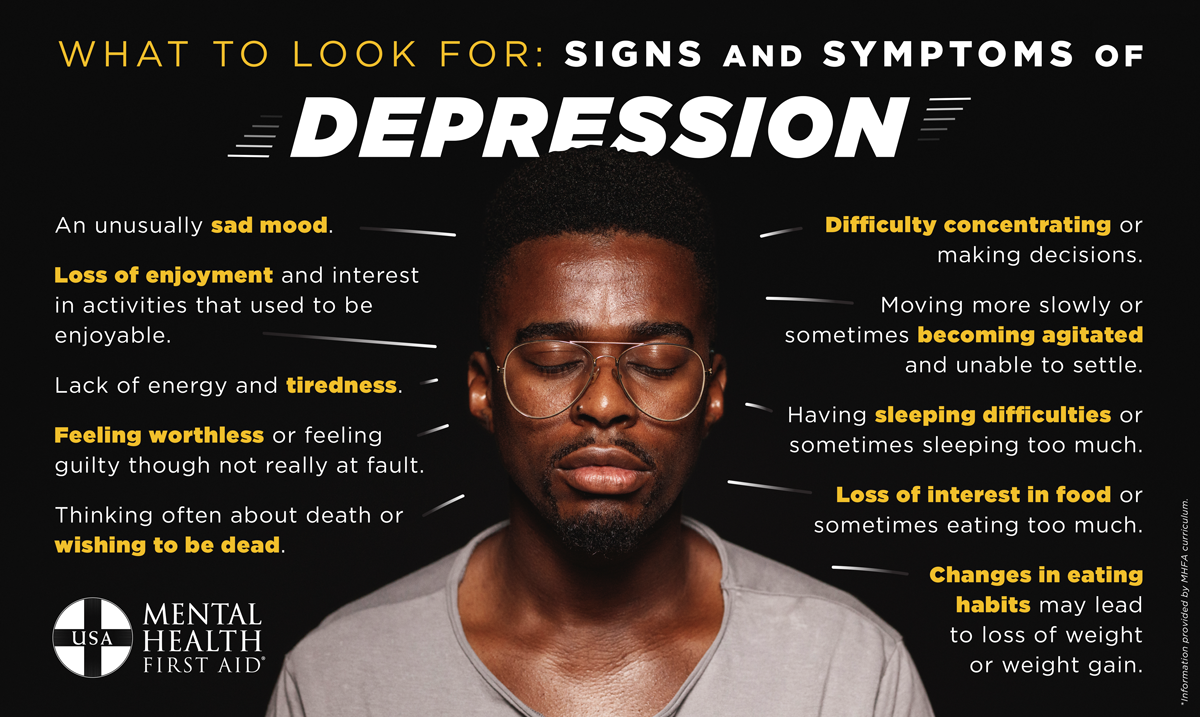Resources

How Breathing Can Help Reduce Stress
While there are a number of different ways to reduce stress, one of the easiest and most convenient methods is one we do every day without thinking: breathing.

Five Ways to Wind Down and Relax Before Bed
A wind-down routine will help signal your body that daytime activities are over and it’s time to sleep.

Moving Your Body Can Help Protect Your Mental Health
It’s no secret that staying active benefits your long-term physical health, but many probably don’t think about the mental health benefits of moving your body.

Two Types of Self-care and How They Can Positively Impact Your Mental Health
The Mental Health First Aid (MHFA) curriculum lays out two types of self-care strategies — physical, and mental and emotional.

Self-care: Where Do I Start?
While it can feel fulfilling to support your loved ones if they are experiencing a mental health or substance use challenge, providing help can also take a toll on your own physical and mental wellbeing.

Four Tips to Help Manage Burnout
Self-care is an important tool to help manage symptoms of burnout and regain physical, spiritual, mental and emotional balance.

Five Tips to Turn Around a Stressful Day
How you handle the stress is what makes a difference, and your response can impact the trajectory of the rest of your day and week.

The Importance of Having a Support System
Many factors contribute to recovery, including having a good support system of people that you like, respect and trust.

6 Ways to Support Your College Student’s Mental Health
College marks a new beginning in a child’s life – for many it’s the first tentative steps away from the safety of their home.

How to Help a Friend Online
According to the teen Mental Health First Aid curriculum, some studies have even suggested that social media use can lead to increased risk of depression, anxiety and sleep deprivation in some teens.

How to Help Someone Who is Suicidal
It can be intimidating to talk about suicide or ask people about what they’re going through, but this guide will explain how to help someone who is suicidal.

The Four Dimensions of Recovery and How You Can Support Them
Although stigma and misinformation persist, millions of Americans are living in recovery – a daily challenge to choose long term health and wellbeing.

Bipolar Disorder: Debunking Myths and Misconceptions
Bipolar disorder has gained its share of notoriety, being featured in TV shows, movies and books; but in some cases, this complex condition has been broadly reduced to extreme changes in mood and behavior.

The Impact of Mental Health Challenges on Teens
Being a teen comes with exciting milestones that double as challenges – like becoming independent, navigating high school and forming new relationships.

What to Look For: Signs and Symptoms of Depression
It’s important for everyone to be able to recognize the signs and symptoms of depression so you can take action and get support before it’s too late.

How to Take Care of Yourself When You’re Feeling Overwhelmed
When you’re starting to feel overwhelmed, remember that you can always revisit your self-care plan. Self-care plans are personal, which can be just the thing for when things feel like too much.

Talking to Your Teen About Mental Health
As conversations around mental health become more common, it is increasingly important that we consider the mental health of everyone – especially teens.

Providing Mental Health First Aid to LGBTQ+ Communities
This blog post includes recommendations, guidelines and facts that can inform your conversations as you provide or teach Mental Health First Aid.

Five Tips for Nonjudgmental Listening
Use these Mental Health First Aid tips to be an effective nonjudgmental listener for those around you.

The Awkward Conversation: How to Respond When Someone Tells You They’re Not Okay
In this recent video from Mental Health First Aid USA, Dani, a woman who has lived with anxiety and depression for more than 12 years, opens up to some complete strangers about her experience with depression.
